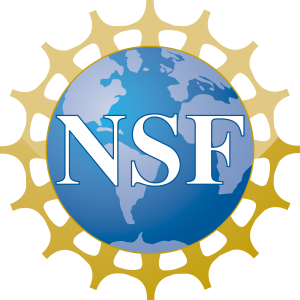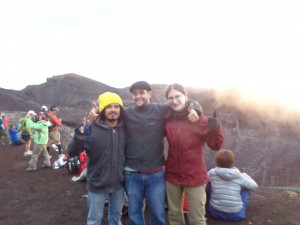 The National Science Foundation (NSF) East Asia and Pacific Summer Institutes (EAPSI) Fellowship Program provides U.S. graduate students in science and engineering with an opportunity to spend 8 weeks (10 weeks for Japan) during the summer conducting research at one of seven host locations in East Asia and the Pacific: Australia, China, Japan, Korea, New Zealand, Singapore, and Taiwan. The program is a collaboration between NSF and counterpart agencies in each host location.
The National Science Foundation (NSF) East Asia and Pacific Summer Institutes (EAPSI) Fellowship Program provides U.S. graduate students in science and engineering with an opportunity to spend 8 weeks (10 weeks for Japan) during the summer conducting research at one of seven host locations in East Asia and the Pacific: Australia, China, Japan, Korea, New Zealand, Singapore, and Taiwan. The program is a collaboration between NSF and counterpart agencies in each host location.
EAPSI is open to graduate students who are U.S. citizens or permanent residents and are enrolled in a research-oriented Masters or Ph.D. program in science or engineering. Applicants must propose a research project in a field of science, engineering or STEM education supported by NSF, including Computer and Information Science and Engineering. Applicants identify and contact host researchers on their own, prior to submitting their EAPSI proposal; lists of prospective host institutions are available at the end of each locations Handbook.
NSF provides EAPSI Fellows with a $5,000 stipend and roundtrip airplane ticket to the host location. Our foreign counterparts provide in-country living expenses and accommodations (arrangements vary by host location). Please see www.nsf.gov/eapsi for additional information, including the Program Solicitation; host location-specific Handbooks; How to Apply Guide; and Helpful Tips for Applicants.
Andy Echenique is a computer science PhD student at UC Irvine. He was awarded an EAPSI Fellowship in 2014 titled “Understanding cyberinfrastructre in international scientific research,” which brought him to the University of Tsukuba in Japan where he collaborated with Dr. Hideaki Kuzuoka. Here is what Andy had to say about his experience:
We often talk about the benefits of professional networking in academia. Conferences, workshops, and informal interactions with fellow researchers can provide the foundation for a successful and long-lasting collaboration. Though massive advancements have been made in the capabilities of computer networking technology, computer-mediation still has a significant effect on maintaining a healthy research relationship. As a researcher in cyberinfrastructure and international collaboration, I’ve long seen the benefits of face-to-face interaction and it is still the gold standard for building personal connections.
The National Science Foundation’s East Asia and Pacific Summer Institutes (EAPSI) program provided an incredible opportunity to establish these connections with researchers abroad. Especially due to the nature of my research topic, understanding both sides of an international collaboration is critical. Over the fellowship’s three-month duration, I had the chance to talk with many researchers engaged in international collaboration and personally experience how evolving technology is affecting their work. Matching this fantastic research setting is the true beauty of the program: experiencing a foreign country while interacting with a cohort of fellows from all over the world. Networking is infinitely easier when face-to-face, and doing so at the 12,388 ft. summit of Mt. Fuji is equally hard to match.
The application submission deadline for Summer 2015 is November 13, 2014.
An EAPSI Informational Webinar will be conducted on Friday, October 17, 2014, at 2:00 pm ET. Log-in instructions are available at www.nsf.gov/eapsi.










